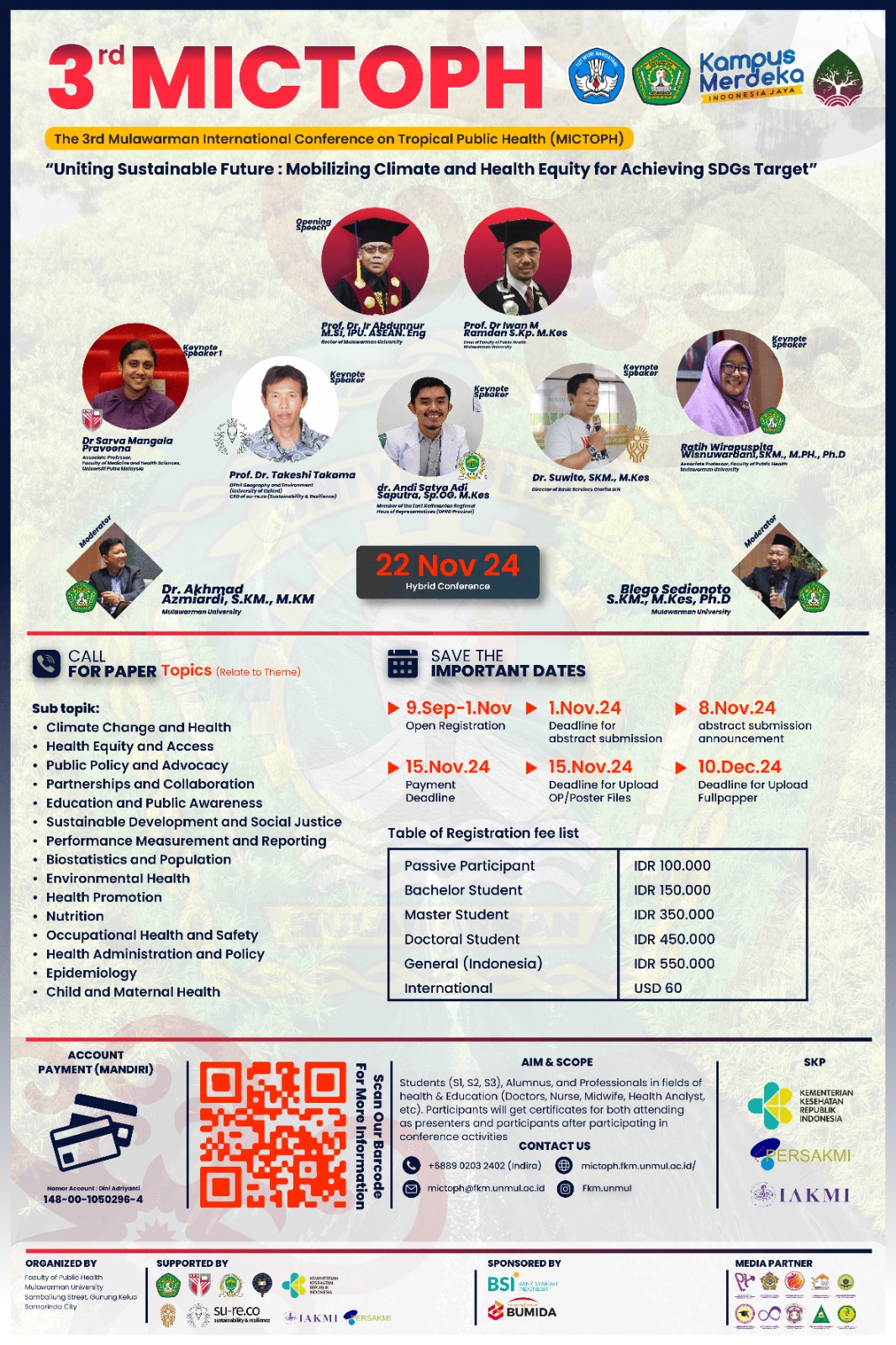Qualitative Study on The Determinants of Teenage Pregnancy in Central Maluku Regency
Keywords:
Determinants, Pregnancy, TeenageAbstract
Teenage pregnancy in Indonesia is a significant health issue that can lead to complications during pregnancy and childbirth. It refers to pregnancies occurring in individuals under the age of 20, a period when the reproductive organs are not yet fully prepared for childbirth. Correspondingly, this study aimed to analyze the determinants of teenage pregnancy in Central Maluku Regency. A qualitative research method with a phenomenological approach was employed, and data were collected through in-depth interviews. The informants for this study were selected using a purposive sampling technique. The subjects consisted of four teenagers aged 15–19 who had experienced pregnancy, two healthcare workers, and one village head. The data were analyzed utilizing the interactive data analysis model proposed by Miles and Huberman, involving the stages of data collection, data condensation, data display, and conclusion drawing/verification. The findings identified four key determinants of teenage pregnancy: 1) Lack of knowledge among teenagers about pregnancy, 2) Premarital sex, 3) Insufficient adolescent health care program (PKPR), and 4) Socio-cultural factors, including the practice of marrying minors. It could be concluded that these determinants significantly contributed to the high incidence of teenage pregnancies in Central Maluku Regency. Therefore, it is essential to implement educational programs and counseling on reproductive health to prevent teenage pregnancies.





